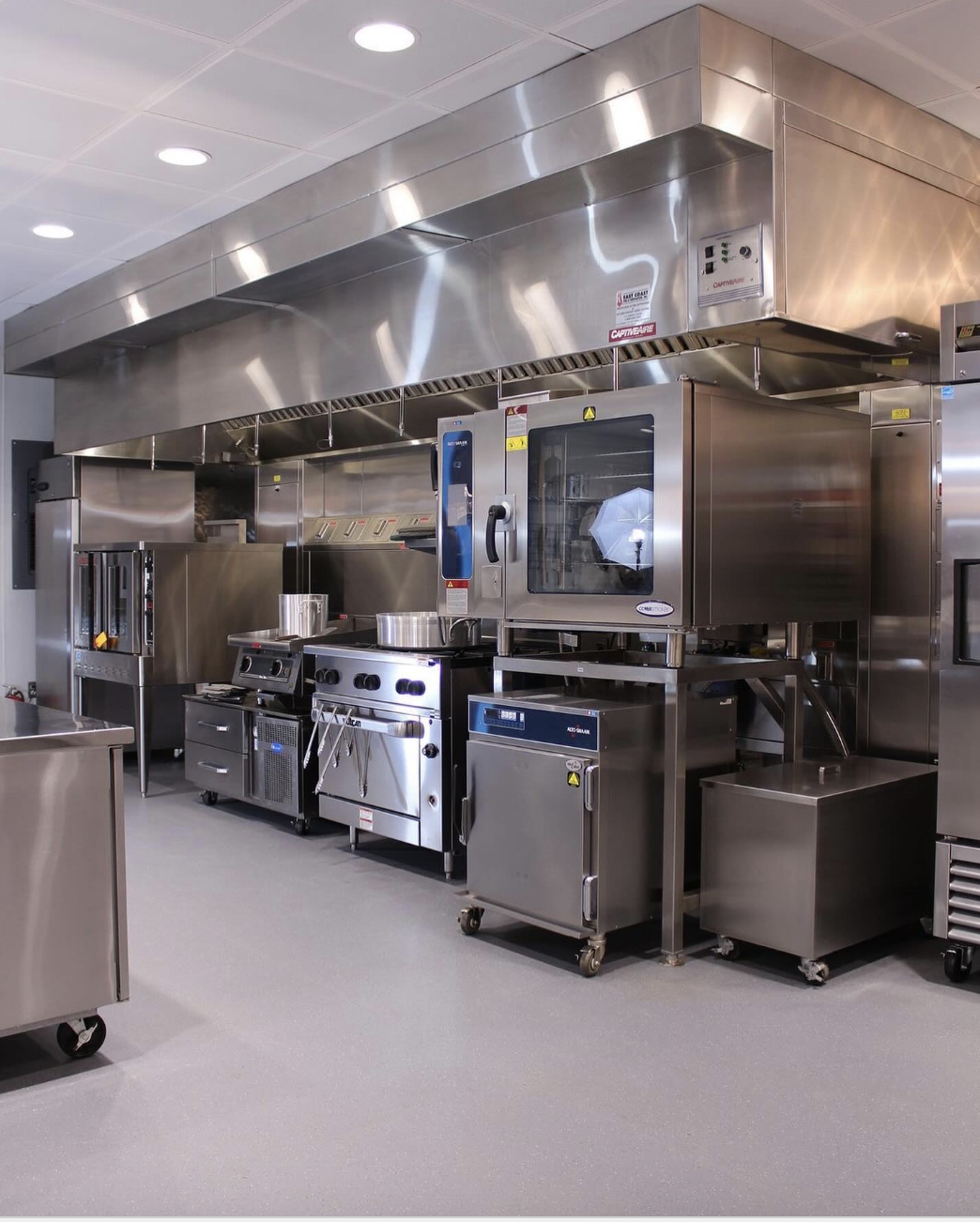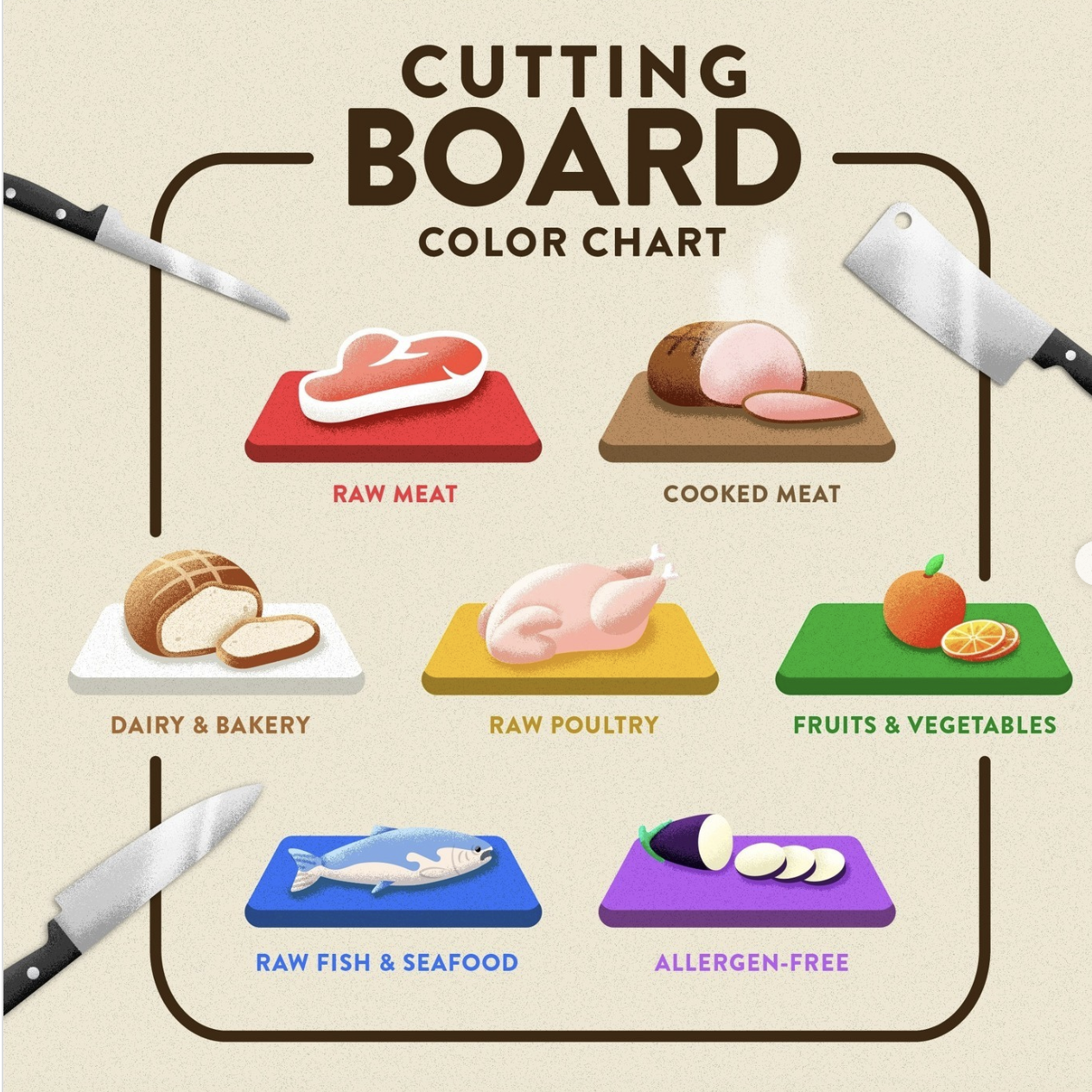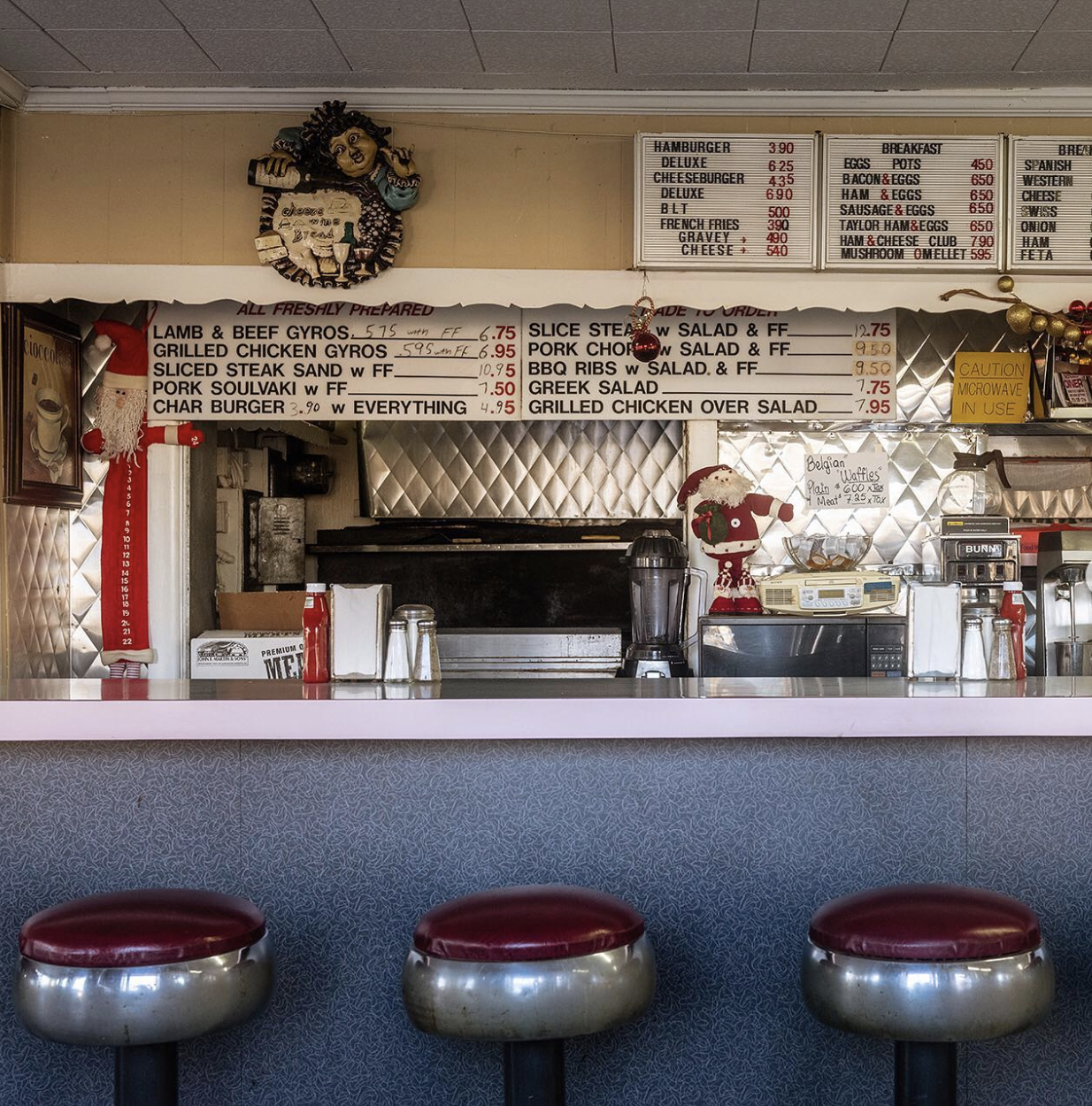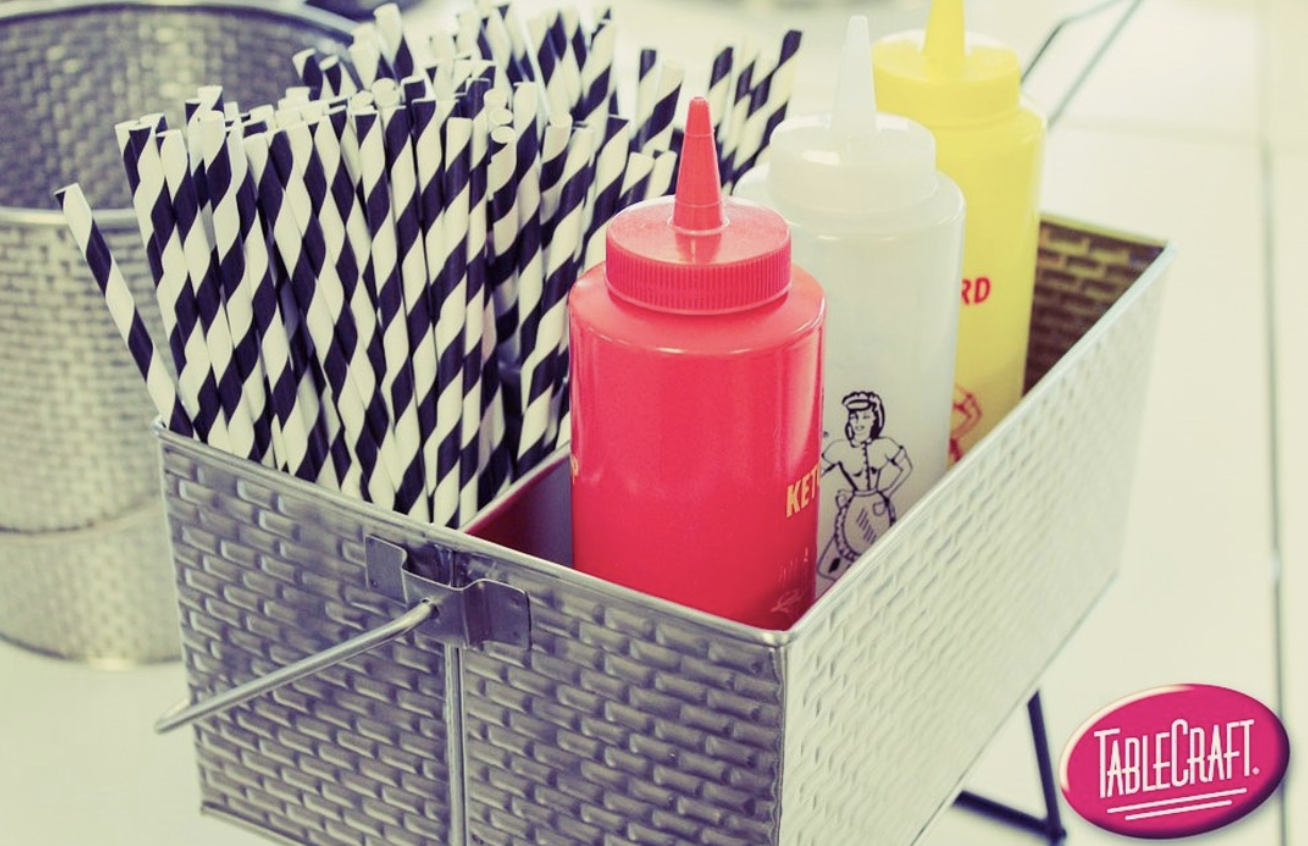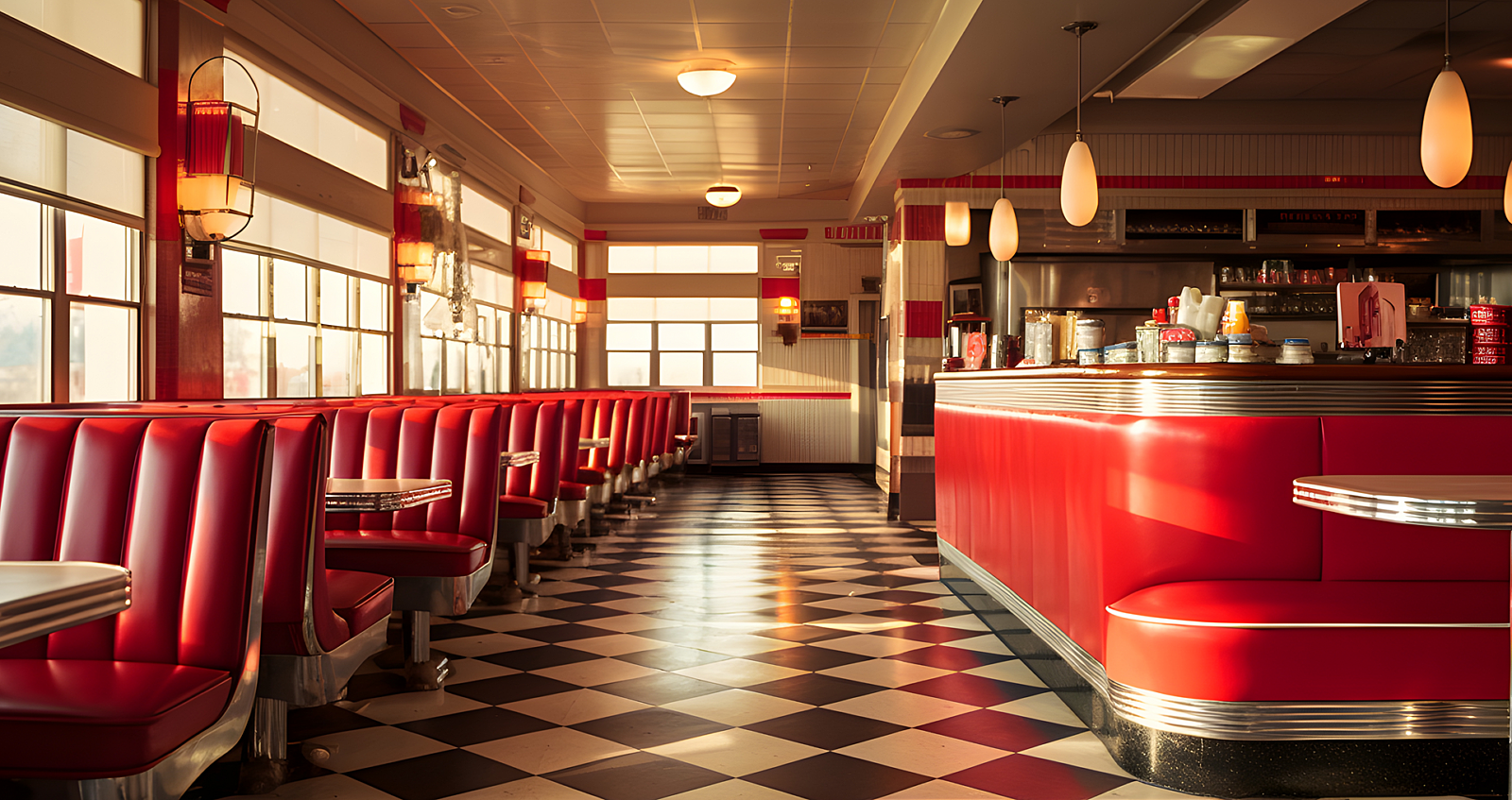
Diner Equipment: Breakdown of Essential Gear For 2024
Discover all the essential diner equipment you’ll need here.
Aidan ToborAuthor
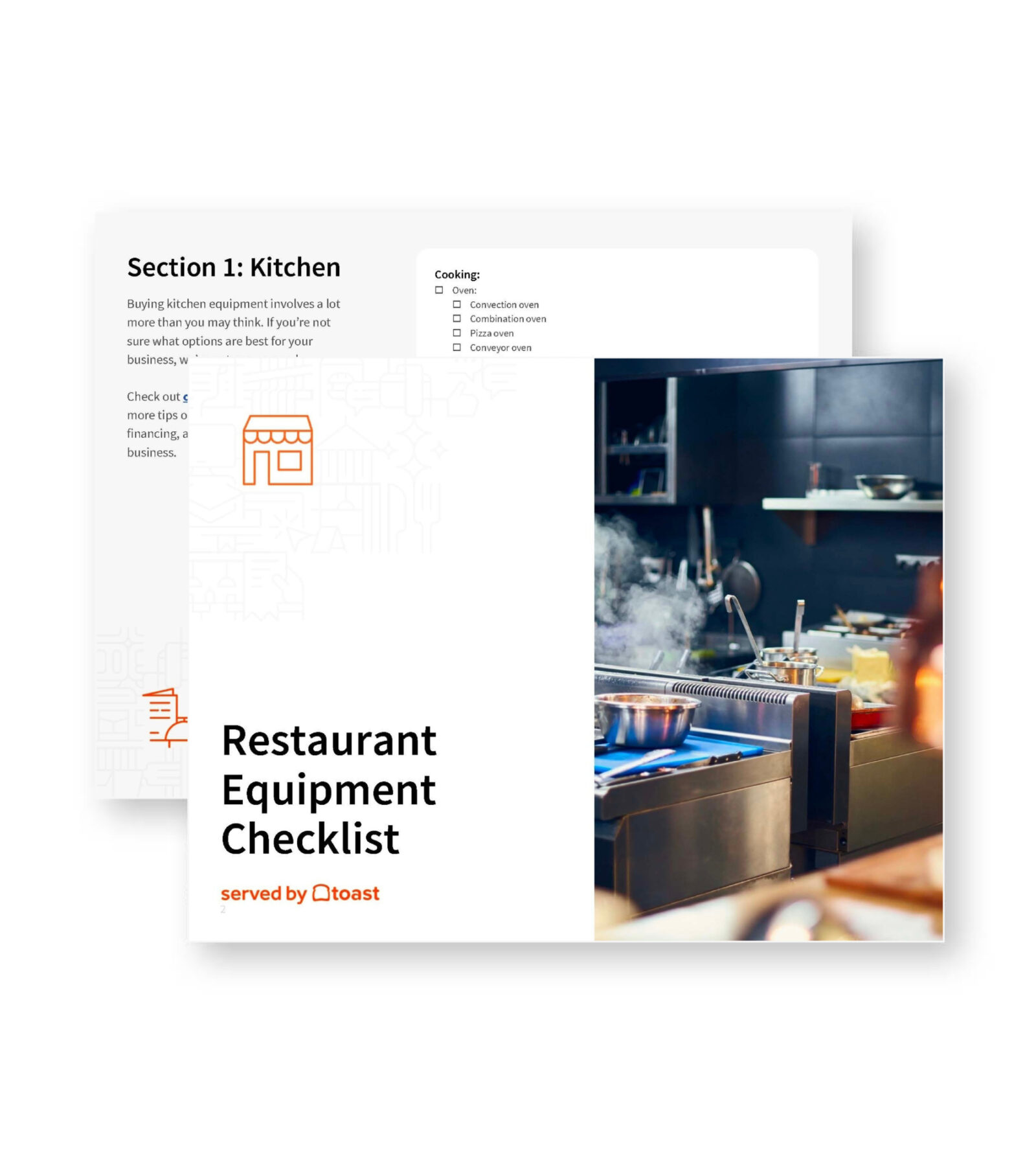

Restaurant Equipment Checklist
Opening or upgrading a restaurant? Don't miss any essential equipment! Download our free, comprehensive restaurant equipment checklist.
Get free downloadIf you’re planning to open a diner, investing in the right equipment is crucial to your success.
According to Restaurant Business Online, breakfast restaurant visits increased by 4% in 2023. To meet this rising demand for morning meals, your diner needs to serve up pancakes, eggs, and other favorites quickly and efficiently.
In addition to breakfast, you’ll also need to consider your lunch and dinner offerings, which means you’ll likely require more equipment than a typical coffee shop or casual restaurant. Plus, you’ll need to factor in food safety, storage, and technology.
With so much to think about, choosing the right equipment can feel overwhelming.
That’s why, in this article, we’ll break down all the essential diner equipment you’ll need, from commercial kitchen gear to front-of-house basics.
Key takeaways
Invest in commercial kitchen equipment to serve customers quickly and handle the breakfast rush.
While high-quality kitchen equipment is essential to your success, so is front of house gear like seating, dinnerware, and condiment dispensers.
Don’t neglect cleaning and maintenance supplies so you can keep your diner spotless, encourage repeat business, and comply with food safety regulations.
Incorporate modern technology, like a comprehensive POS system, to streamline your operations and provide a better customer experience.
Commercial kitchen equipment
The most important gear you need to run your diner is commercial kitchen equipment. After all, your delicious food is the main reason customers come to your restaurant in the first place!
So, consider purchasing the following types of equipment to ensure you can serve large groups of people efficiently, especially during the breakfast rush.
Cooking Equipment
At the core of every diner kitchen is cooking equipment. These heavy-duty pieces are the workhorses that bring your menu to life:
Griddles: Large, flat cooking surfaces essential for pancakes, eggs, and burgers. Look for durable, commercial griddles with even heat distribution.
Grills: For those perfectly char-grilled items like steaks and chicken breasts. Choose between char grills or clamshell grills based on your menu and space.
Commercial Ovens: Convection ovens are versatile for baking pies, roasting meats, and warming dishes. Consider stackable models to save space.
Broilers: Ideal for melting cheese on open-faced sandwiches or finishing off dishes with a crispy top.
Deep Fryers: Essential for crispy fries, onion rings, and other fried favorites. Opt for models with built-in filtration systems for easier maintenance.
Commercial Microwave: For quick reheating and defrosting. Choose a high-wattage, heavy-duty model designed for commercial use.
Refrigeration
Proper food storage is crucial for both food safety and quality. Your diner will need a variety of commercial refrigeration equipment, such as:
Reach-in refrigerators: For easy access to frequently-used ingredients. Look for energy-efficient models with adjustable shelving.
Undercounter refrigerators: Space-saving options for workstations, keeping ingredients at hand for food prep.
Walk-in coolers: For bulk storage of perishables, which is essential for larger diners with high volume.
Prep tables: Refrigerated prep tables combine workspace and cold storage, perfect for sandwich and salad stations.
Ice machines: A must-have for beverages. Choose a model that can keep up with your peak demand.
Ice cream freezers: If you're serving up milkshakes and sundaes, a dedicated ice cream freezer is essential.
Specialty diner equipment
Some classic menu items require specialized equipment to achieve that authentic diner taste and texture:
Waffle irons: For crispy, golden waffles.
Panini presses: For grilled sandwiches with perfect grill marks.
Soup warmers: To keep soups and chilis at the perfect serving temperature.
Steam tables: For holding and serving hot foods during busy periods.
Food preparation equipment
Efficient food prep is key to a smooth-running diner. These pieces of equipment will help your staff work quickly and consistently:
Commercial work tables: Stainless steel tables provide durable, easy-to-clean surfaces for food preparation.
Mixers: From pancake batter to mashed potatoes, a sturdy commercial mixer is indispensable.
Food processors: For chopping, slicing, and shredding in bulk.
Slicers: Essential for uniform cuts of meats and cheeses.
Blenders: For smoothies, milkshakes, and pureed soups.
Toasters: High-capacity commercial toasters can handle the breakfast rush with ease.
Cutting boards: Use multiple boards to prevent cross-contamination.
Kitchen scales: For portion control and recipe consistency.
Pots and pans: A variety of sizes for different cooking needs.
Utensils: Spatulas, tongs, ladles, and other essential tools.
Sanitation equipment
Cleanliness is paramount in any foodservice operation, so be sure to invest in high-quality dishwashing and sanitation equipment:
Commercial dishwashers: High-temperature models ensure proper sanitization and quick turnaround of dishes, glassware, and flatware.
Compartment sinks: Three-compartment sinks are typically required for washing, rinsing, and sanitizing.
Disposer: For efficient disposal of food waste.
Hand Washing Stations: Use strategically placed sinks with soap dispensers and paper towel holders.
Front of house diner equipment
While the kitchen is the engine of your diner, the dining area is where customers experience the full diner charm. Therefore, it’s critical to think about the equipment you’ll need in the front of the house to ensure you meet guests’ expectations.
Counter and seating
Your diner’s seating options play a crucial role in creating the right atmosphere and ensuring customer comfort.
A thoughtful selection of counters, stools, booths, and tables can enhance the dining experience and encourage guests to stay longer:
Countertop: A long, durable countertop is essential for a classic diner look. Choose materials like stainless steel or laminate that are easy to clean and maintain.
Bar Stools: Opt for sturdy, comfortable stools with footrests and cushioned seats to ensure guests can sit comfortably for extended periods.
Booths and Tables: Traditional diner booths and tables provide a cozy, relaxed seating option. Look for easy-to-clean materials and padded booths for extra comfort.
Beverage and dessert service equipment
Beverages and desserts are diner staples, so having the right equipment is crucial to meet customer demand and maintain quick service:
Coffee Makers: Invest in high-capacity coffee brewers to ensure a steady supply of fresh coffee, especially during peak hours.
Drink Dispensers: Use reliable dispensers for soft drinks, iced tea, and other popular beverages to streamline service and keep drinks easily accessible.
Ice Cream Scoop Wells: Install scoop wells to keep ice cream scoops clean, chilled, and ready for quick dessert preparation.
Milkshake Machines: A must-have for serving classic diner milkshakes and malts, ensuring a thick, creamy consistency for these nostalgic favorites.
Displays and merchandising
Displaying your food and specials effectively can entice customers and increase sales, so proper merchandising is key:
Menu Boards: Use clear, easy-to-read menu boards to highlight daily specials and prices, keeping customers informed at a glance.
Hot Food Merchandisers: Display hot, ready-to-serve items like rotisserie chickens or sandwiches to entice customers and speed up service.
Pie Cases: Invest in refrigerated pie display cases to showcase desserts, encouraging impulse buys with tempting visuals.
Restaurant Health Inspection Checklist
This free checklist gives you all the tips and tricks you need to ace your next inspection.

Tabletop equipment
The right tabletop equipment helps ensure practicality while maintaining a classic diner feel:
Dinnerware: Choose durable plates, bowls, and mugs that can handle frequent use and withstand repeated washing without chipping or breaking.
Flatware: Opt for heavy-duty utensils that are sturdy and offer a comfortable feel for guests.
Glassware: Stock a variety of glassware for water, soft drinks, and milkshakes, ensuring they are durable and easy to clean.
Condiment Dispensers: Provide easy-to-use dispensers for ketchup, mustard, sugar, and other essentials to keep tabletops organized and convenient.
Restaurant Equipment Checklist
Opening or upgrading a restaurant? Don't miss any essential equipment! Download our free, comprehensive restaurant equipment checklist.

Food safety and storage equipment
Maintaining proper food safety standards is crucial for keeping customers and staff safe, as well as complying with regulations. Be sure to include the following in your setup:
Thermometers: Use reliable thermometers to monitor food temperatures both in storage and during cooking to ensure food safety.
Food Storage containers: Store ingredients in airtight containers to keep food fresh and prevent contamination.
Labels and tape: Keep labels and tape on hand to clearly date and identify stored items, making inventory management easier.
Shelving units: Install sturdy shelving units in your pantry and walk-in cooler to optimize space, organization, and accessibility.
First aid kit: Have a fully-stocked first aid kit readily available for handling minor injuries and emergencies in the kitchen.
Cleaning and maintenance equipment
Keeping your diner spotless is essential for passing health inspections and ensuring customer satisfaction. So, it’s critical that you stock up on equipment like:
Cleaning supplies: Purchase industrial-strength cleaners, sanitizers, and degreasers to maintain hygiene and cleanliness throughout the diner.
Mops and buckets: Have durable mops and buckets on hand for quick spill cleanups and thorough end-of-day floor cleaning.
Trash bins: Place trash bins in both the kitchen and dining area for efficient waste disposal and to keep the space tidy.
Grease traps: Install grease traps to prevent plumbing issues and ensure compliance with local health regulations.
Restaurant Cleaning Checklist
Download the Restaurant Cleaning Checklist, created in partnership with RestaurantSupply.com, to keep track of the cleaning tasks that need to be completed in your restaurant.

Technology and point of sale systems
While not traditional equipment, these modern tools are essential for keeping your diner running smoothly and efficiently:
POS system: Use a reliable POS system to take orders, process payments, and track inventory, helping streamline daily operations.
Kitchen display system: Implement a kitchen display system to improve communication between the front and back of house, reducing errors and wait times.
Security cameras: Install security cameras to monitor customer and employee areas, improving safety and preventing theft.
How to choose your diner equipment
While there’s a lot of different gear you’ll need to run your diner, selecting the right equipment is vital for your success.
While managing costs is essential, it’s important to purchase durable equipment to prevent breakdowns. As Joe Gallagher, Co-Founder and COO of 86 Repairs, said in an interview with Restaurant Technology News:
“The last thing you have time to do as a restaurant owner is call multiple service providers to get someone on site when you need them, walk them over to the piece of equipment that needs to get fixed, and talk them through the exact problem… all while something’s burning in the oven. There’s a dozen other things on your plate that require the same energy and attention to detail as sourcing a vendor to deal with broken equipment.”
So, consider these factors to make the best choices:
Quality: Invest in commercial-grade equipment that can handle the high demands of a busy diner and last long-term.
Budget: Balance quality with affordability, and explore leasing options for major equipment to manage initial costs.
Space constraints: Measure your kitchen and dining areas carefully to ensure your equipment fits without crowding.
Versatility: Select equipment that can serve multiple purposes to save on space and improve efficiency.
Energy efficiency: Opt for energy-efficient appliances to help reduce utility costs and improve sustainability.
Maintenance and repairs: Choose brands with readily available parts and service to minimize downtime during repairs.
Health regulations: Make sure all equipment complies with local health codes to avoid potential fines or issues.
Future growth: Plan for menu expansion or higher customer volume by choosing equipment that can scale with your business.
Launch your diner with the right equipment
Overall, choosing the right diner equipment is essential for serving customers quickly and providing a great dining experience. While investing in commercial-grade cooking equipment and food safety gear are top priorities, so is integrating modern technology.
For example, with Toast’s POS system, you can easily streamline your operations with features like employee tip management and payroll tools. Likewise, you can increase customer retention with loyalty programs and email marketing, all in one simple platform.
To discover all the ways Toast can help you run a better diner, be sure to check out all of the amazing features!Is this article helpful?
DISCLAIMER: This information is provided for general informational purposes only, and publication does not constitute an endorsement. Toast does not warrant the accuracy or completeness of any information, text, graphics, links, or other items contained within this content. Toast does not guarantee you will achieve any specific results if you follow any advice herein. It may be advisable for you to consult with a professional such as a lawyer, accountant, or business advisor for advice specific to your situation.
Subscribe to On the Line
Sign up to get industry intel, advice, tools, and honest takes from real people tackling their restaurants’ greatest challenges.

